Welcome to Carrots! I'm so glad you're back. You can sign up for my email newsletter here to stay in touch, or look me up on Instagram!
Today Daniel answers your questions about gardening, homesteading, and backyard chickens from last week’s Facebook party. Yay!
Chickens
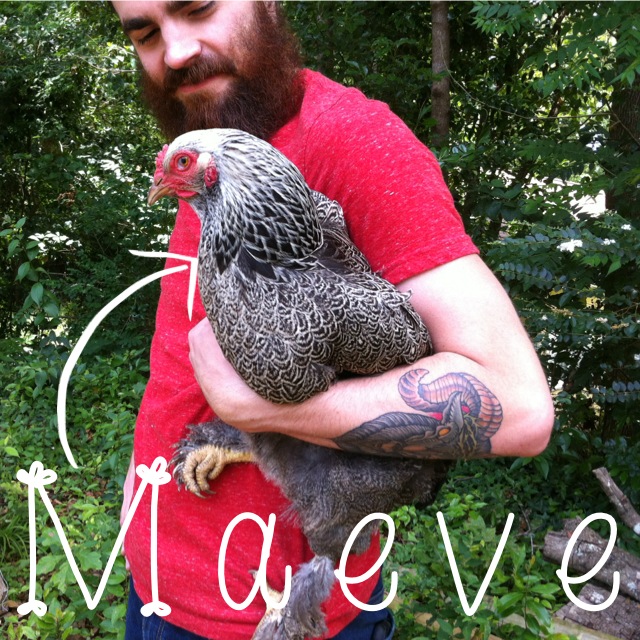
So, here’s the basics of our chicken setup at this point:
We have a 4×8 movable coop. It’s just an A-frame with one half covered by plywood and the everywhere else wrapped in chicken wire. I can easily open one side. There are roosting bars inside. Because it never gets that cold here, they’re fine year round in there. I move the coop once or twice a day. At this point, we have 5 hens. From those 5, we get about 21 eggs a week. Chickens go through cycles of molting so that number sometimes drops.
I chose the movable method (over a stationary coop) for several reasons:
-Because I move the coop often, their droppings never accumulate and get messy or stinky. A lot of folks are concerned about that. I have friends with stationary coops and they clean them often and don’t have too much of a problem.
-I wanted to incorporate the chickens into our garden rotation. Once a certain crop is finished, I’ll move the chickens to that spot and let them eat everything that’s left. They do a great job of clearing the area, aerating the soil, and leaving nitrogen rich droppings behind.
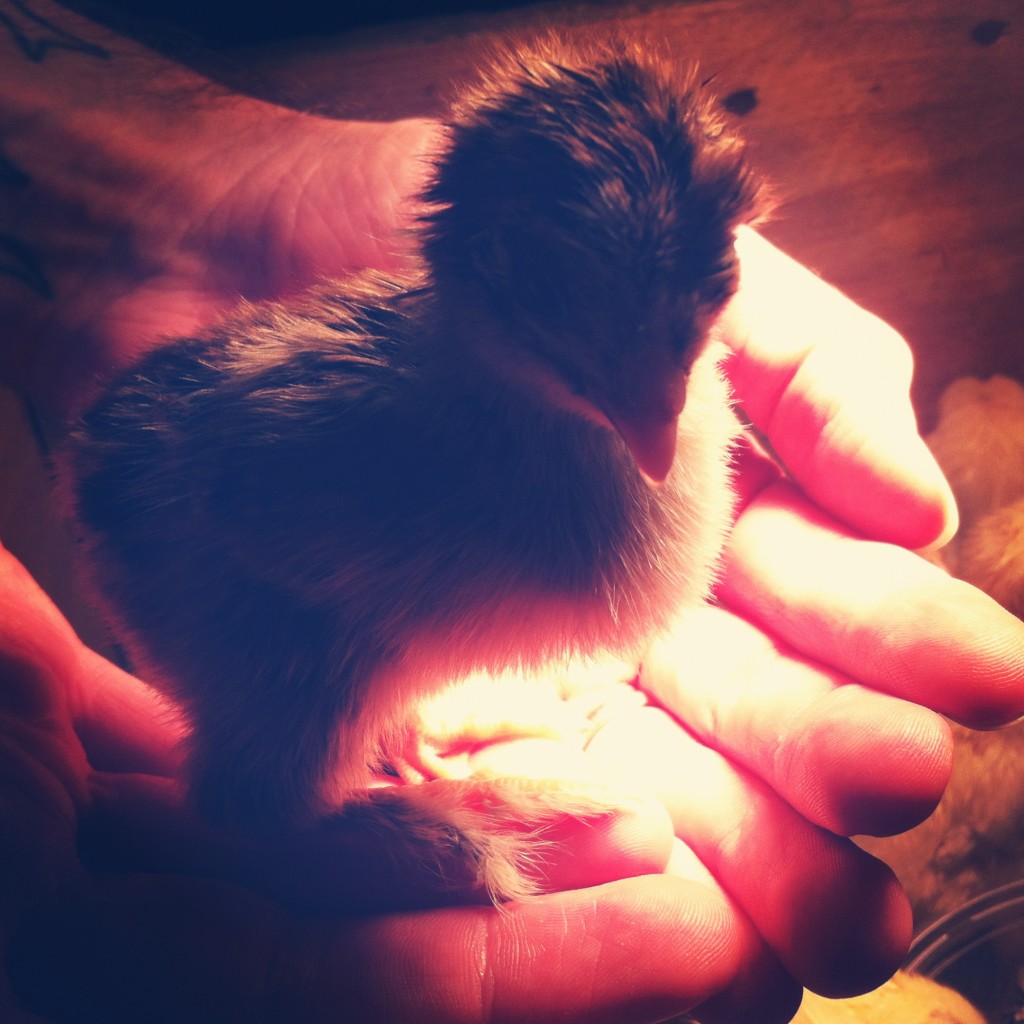
-We don’t have lots of space to let the chickens roam and graze on their own. So, by moving them often, they get access to new weeds and bugs. This makes them happy and makes their eggs more nutritious. I can tell when they’re eating lots of weeds because their yolks are bright orange due to the beta carotene in the plants.
The hardest part:
Keeping adult hens is not difficult. I move the coop, give them new food and water, and gather eggs. This all takes less than 5 minutes a day. However, raising chickens from baby chicks is very difficult and shouldn’t be something you take on lightly. I can’t go into all the details here but chicks require the right temperature and lots of attention. They’ll drown in their water, get stuck in weird places, eat the wrong things, and get sick really easily. I’m not saying this to dissuade anyone from raising chicks. But it’s definitely not something that should be taken lightly. Read up on it before you get started.
We’ve gotten chickens from the feed store before. They usually have a good selection of about 8 breeds. Around here, the stores get chicks in March and April only. I’ve also ordered chicks from a store online. They ship them to the post office and you have to go pick them up there. I probably wouldn’t do that again. They were super stressed when I picked them up and one had already died.
My favorite breeds are Rhode Island Reds, Austrolorps, Buff Orpingtons and Americaunas. They’re all friendly, hardy, and consistent layers. Barred Rocks are another common breed we’ve raised. But the ones we have now are kind of rude.
Garden
Getting started: I had basically no experience when I got started. I just dug up the back yard and threw a bunch of seeds in the ground. I end up with a few watermelons and tons and tons of zucchini. Someone stole the watermelons. There was an alley behind our house and I guess someone just walking into our yard and stole our dang watermelons. I’m still pretty mad about that. I’ve gardened in several different locations since then. I learn so much every year.
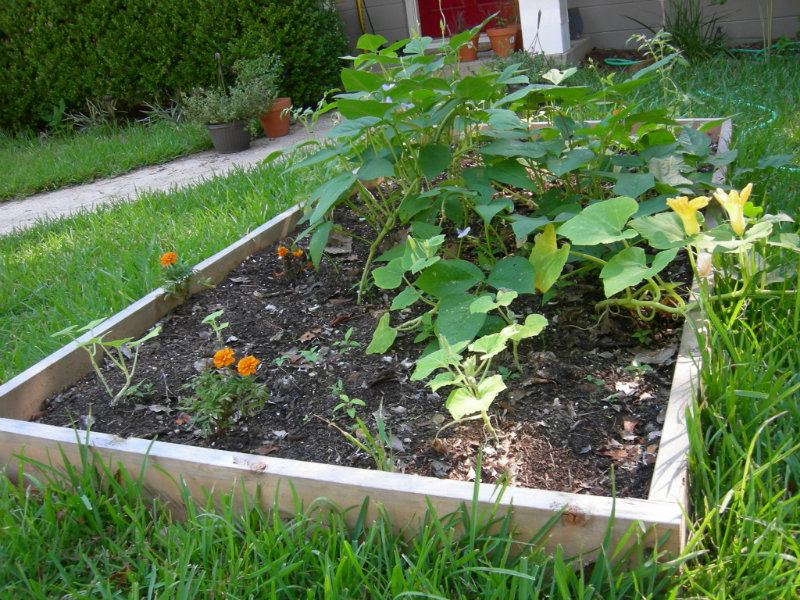
I’ve blogged before about tips for planning a garden but I’ll say here that I do think starting small is the best way to go. Better to end up with a small harvest and ready to do more next year than to be completely overwhelmed and ready to give up. I also think it’s best to start with just a few kinds of plants than to try to grow everything they have at the nursery. Also, climate varies so drastically that my best advice is probably just to get help from people in your area. Experienced gardeners down the street, local feed stores, gardening clubs are all great places to find out specific dates and vegetable varieties for your area. I really don’t have any experience gardening in the desert, in the North, on a balcony, or anywhere that isn’t hot and humid. Sorry!
Great plants for beginners: Legumes! I think beans and peas are some of the easiest plants to grow and will usually produce enough to make the effort worthwhile (bang for your buck, so to speak). We grow green beans in the summer and sugar snap peas in the winter. I’ve consistently had great luck with these. I also think greens are great for beginners because, even if they don’t produce amazingly well, you still get baby greens. Here in the deep south, we grow kale, Swiss chard, lettuce, and mustard greens in the winter. The only green we can grow in our summer heat are collards. Of course, it’s also important to consider what you eat now. No point planting a bunch of beans if you’re not gonna eat ’em.
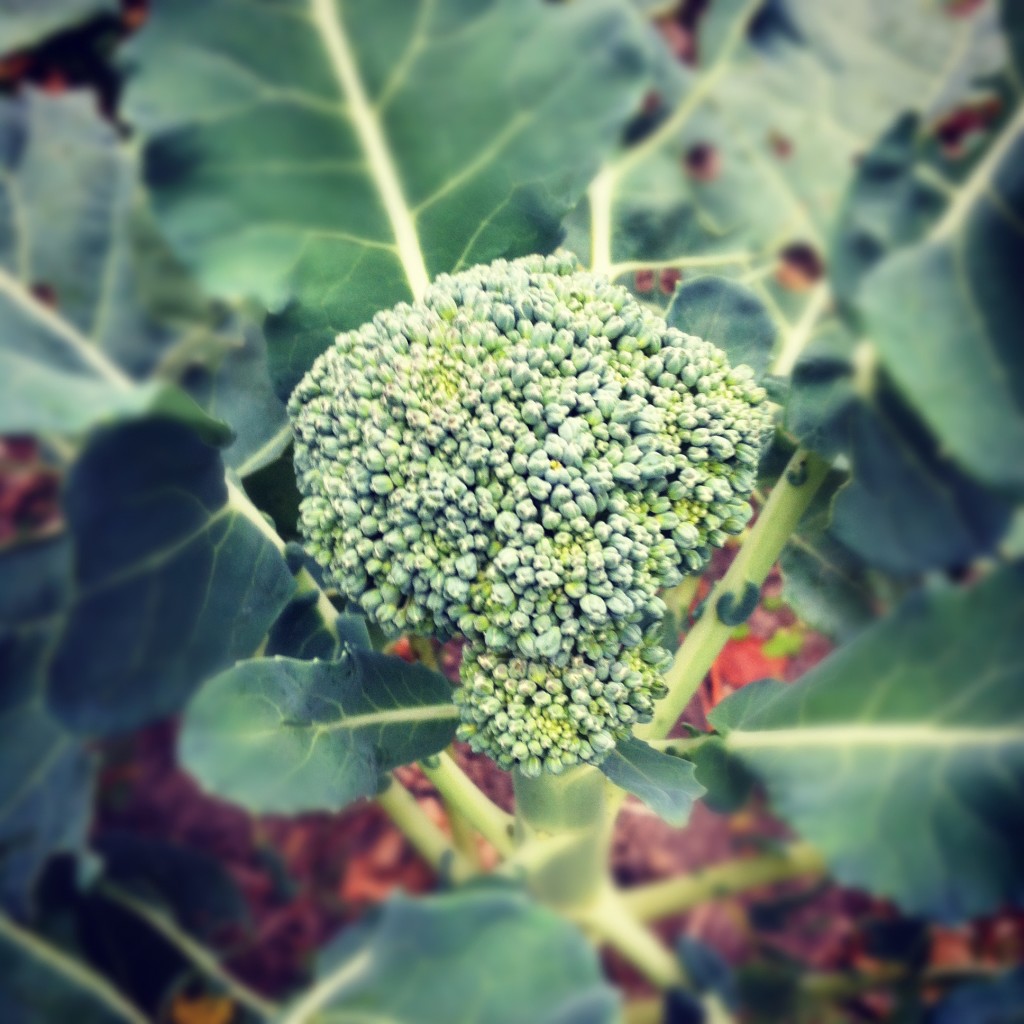
Improving soil health: More Legumes! Another benefit to these crops is that they fix nitrogen into the soil (there’s actually a symbiotic bacteria involved but we won’t go into all the details here). I try to rotate legumes with non-legumes to keep my soil healthy. If you’ve got a big garden and a favorable climate, you might even try cover crops like rye or clover. Other than that, compost is definitely the way to go.
Compost
We have two large bins I made from old shipping crates. While I’m adding new stuff to one bin, the other one is just sitting and composting. For the bin I’m adding to, I just alternate layer our kitchen scraps with old leaves or yard waste. I’ll usually add kitchen stuff for a week and then cover. Adding that layer of leaves or grass is important to get the right balance of nitrogen and carbon. But it’s more important to me just to keep the flies down. To move the process along faster, you’re supposed to turn the piles often. But. I’m kind of busy? So I don’t. The composting process takes longer but that’s fine. Oh! I also get all of the coffee grounds from my work.
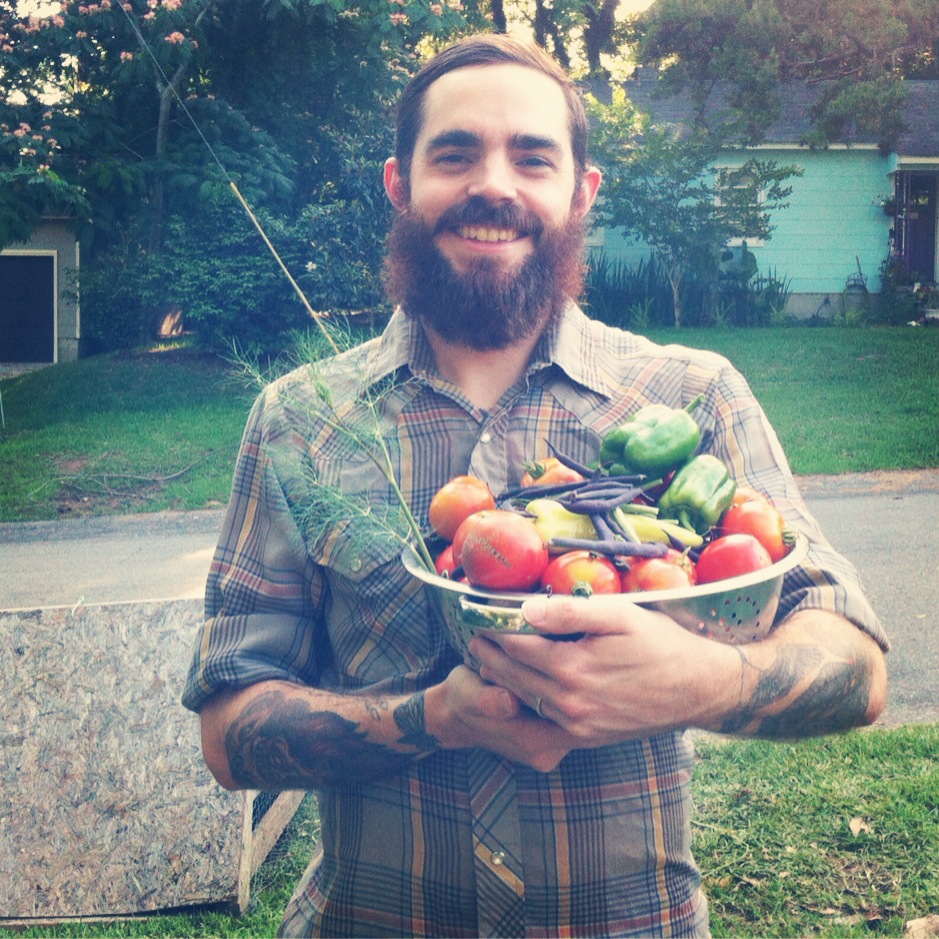
Beards
Someone asked about beard maintenance. I wash my beard whenever I shower. I also comb it a lot. And I use beard wax which makes it nice and shiney and helps keep a good shape. I usually go for the natural beard waxes which are basically beeswax, honey, and some essential oils. Here’s a good one I like. Also, I read somewhere that red meat helps strong hair production. So I’m going with that. I’ve also convinced myself that whiskey is somehow necessary for a healthy, vigorous beard. Cheers!

I can’t believe someone stole your watermelons!!
I mean….I kinda can believe it because I want to steal your produce….
Maybe the rude chickens stashed the watermelons somewhere.
I’m just going to assume that some poor soul happened upon your watermelons just as he was about to succumb to starvation and ate them and they saved his life and he was going to write a thank you note, but then he got amnesia, just like Kermit in the Muppets Take Manhattan.
I was thinking the same thing.
Re: rude barred-rocks.
Yes, we have them at our living history museum and they are big jerks though it doesn’t help that half of our chickens are roosters. Our Rhode Island Reds are fantastic though.